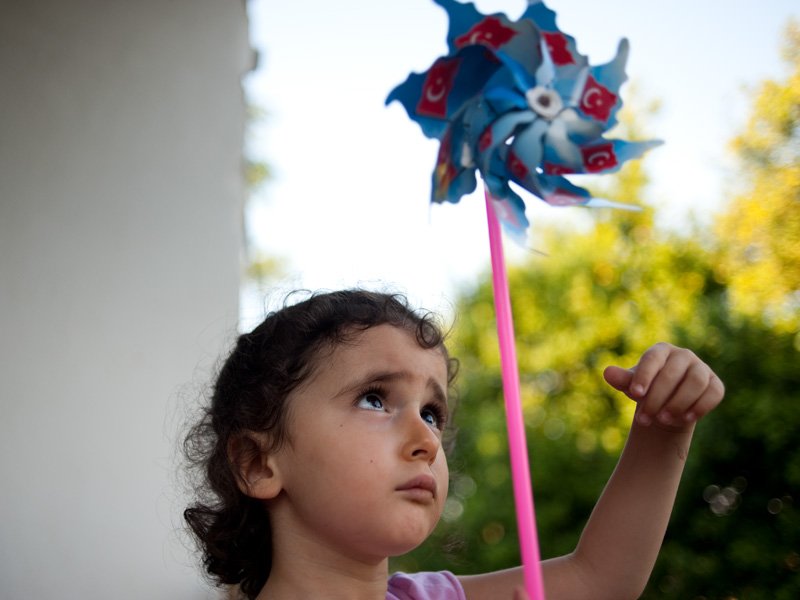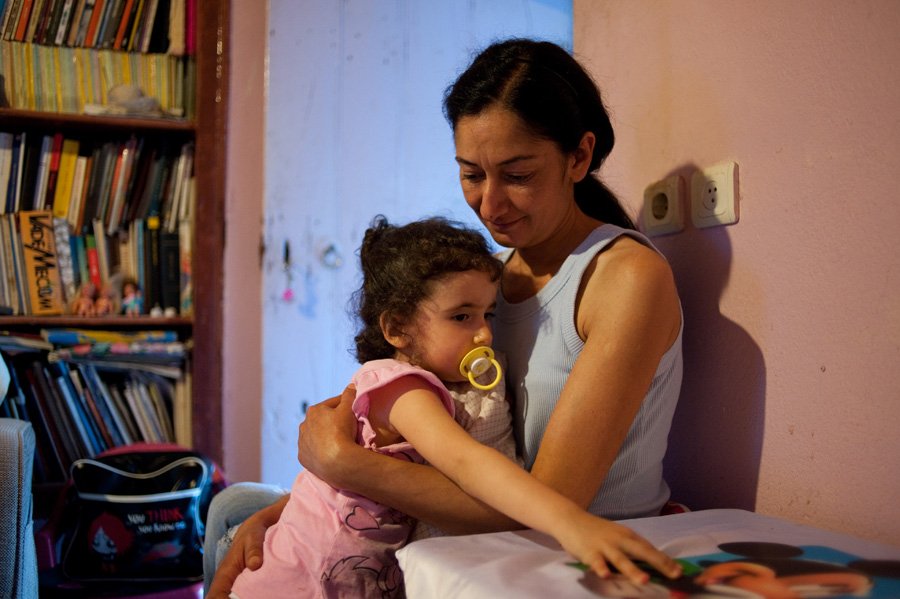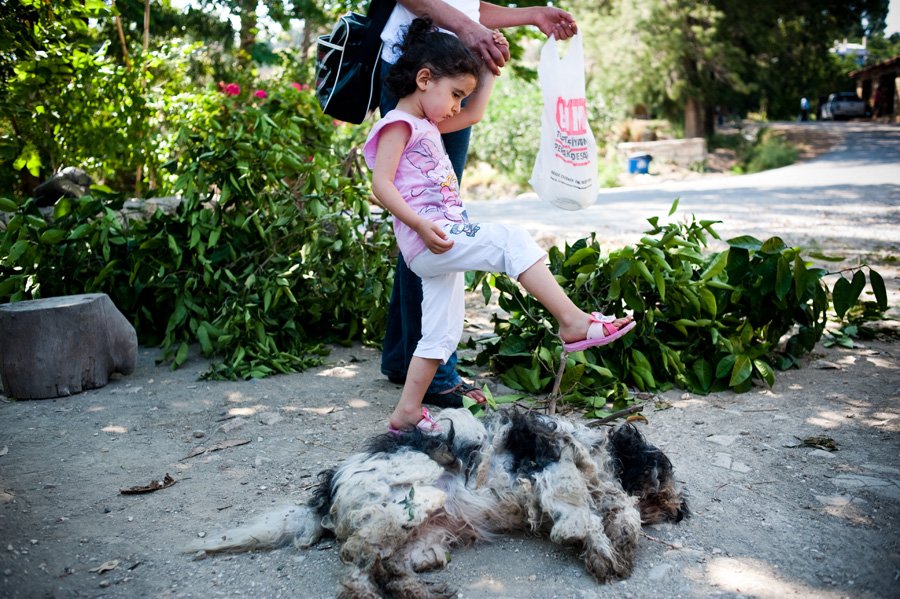 Lusin Kartun crawls through a rip in the screen of the front door. ”I’m like a cat,” she said.
Lusin Kartun crawls through a rip in the screen of the front door. ”I’m like a cat,” she said.
 Lusin plays with a pinwheel. “This is for girls only because the handle is pink, and it has many flags on it,” she said.
Lusin plays with a pinwheel. “This is for girls only because the handle is pink, and it has many flags on it,” she said.
 While sitting with her mother, Ayşe, Lusin reaches for a Mickey Mouse image.
While sitting with her mother, Ayşe, Lusin reaches for a Mickey Mouse image.
“Why are you running away from me?” Lusin squeals as she chases after her pink “Dora the Explorer” rubber ball.
The ball bounces under the picnic table on the front porch and comes to rest next to the leg of a plastic chair.
“I found you,” Lusin says triumphantly before grabbing it with both hands.
She bounces it again on the concrete and watches it roll across the floor.
“Come back here, naughty ball!”
At 3 years old, Lusin is the youngest villager in Vakıflı. Her mother, Ayşe, is Turkish; her father, Agop, is Armenian and a native of Vakıflı. Their quiet corner of the village is littered with flowering shrubs, trees with branches heavy from ripening fruit, and sleeping cats. Lusin’s favorite cat is Zeytin, or “Olive,” a creaky black-and-white creature who tolerates the girl’s pats and coos.
“Look, Zeytin, it’s Stone Baby!”
After having abandoned her ball, Lusin shows off her favorite toy, a thimble-sized plastic baby wearing a faded blue diaper.
“When Stone Baby is lost, it’s a big deal. I have to do a big cleaning [to find it] so everything will be fine again,” Ayşe says.
Lusin, a typical child, stays focused on each of her toys for a few minutes at a time. She drops Stone Baby onto Zeytin’s outstretched paws and retrieves a plastic tray and mismatched tea cups. She carefully lays the set on the table in front of her mother.
“Are we having tea, sweetheart?” Ayşe asks.
“Yes,” Lusin answers, distributing cups between herself, her mother and Stone Baby, who has been quickly reclaimed from Zeytin.
“Cranky,” Ayşe remarks.
Lusin’s response is a frown and crossed arms, followed by stomping across the porch.
The little girl’s moods are mercurial, but she is feisty and spirited, handy traits for a child whose closest playmate is her mother. Her father, a pharmacist, spends his summers running a pharmacy in Alanya, a coastal city about 9 hours northwest of the tiny village near the Syrian border. In his absence, Ayşe takes on both parental roles, and she admits to indulging her daughter.
“It’s not that she’s spoiled, she’s determined. Very determined.”
A few times a week, the two walk hand-in-hand into town to visit with other villagers, like Sima Babek and Lora Kartun. Lusin has one good friend, Kevork, the next youngest child in Vakıflı; he is 5 years old. They like to play together at the local coffee house and can often be found cuddling with the village dogs.
For the most part, however, mother and daughter stay tucked into the little blue house at the edge of a field, content with their drowsy animals. Ayşe keeps a watchful and patient eye on Lusin, who revels in her mother’s attention.
As the sun begins to set on the hot summer evening, Ayşe takes her daughter inside and sets a mini keyboard in front of her. She perches on the corner of a sofa to watch Lusin play, and her eyes warm with pride and love. Lusin’s bubbling laughter, her complete joy with her toy, washes over her mother and out of the screen door into the dusky light.
 Lusin steps over “Pamuk,” or “Cotton,” one of Hasmik Babek’s dogs.
Lusin steps over “Pamuk,” or “Cotton,” one of Hasmik Babek’s dogs.
 Lusin (right) watches her best friend, Kevork Çapar, the second youngest child in Vakıflı, play with his mother, Elen.
Lusin (right) watches her best friend, Kevork Çapar, the second youngest child in Vakıflı, play with his mother, Elen.